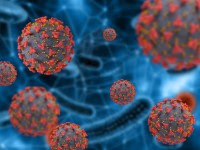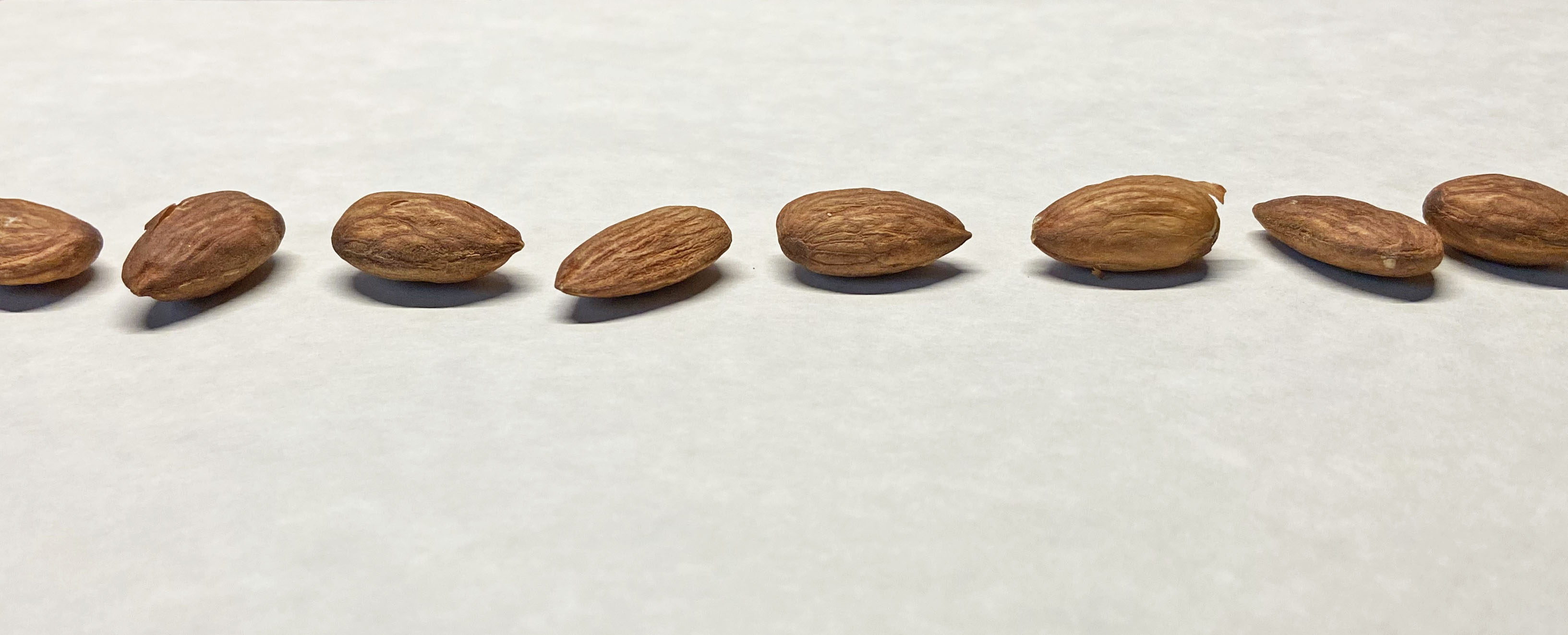Staying Healthy During a Pandemic: Choices You can Make in the Face of COVID-19
The current pandemic sparked by the novel Coronavirus and the illness it can cause, COVID-19, has created challenges for all of us. We feel overwhelmed and exhausted, confused by the barrage of shifting data and public health recommendations. Staying healthy has become a constant concern. To help you navigate through this swell of information, we have gathered resources to clarify what is known about this virus along with tips to guide you and your family in making informed choices about how to stay healthy. We are not going to throw more numbers at you; rather, we’ll cover:
- The What, How, and Why of Coronaviruses and COVID-19

- Strengthening Your Immune System:
- Diet & Nutritional Supplements
- Sleep
- Physical Activity
- Social – Emotional Wellness
Remember, prevention and treatment of any health condition is best done through an approach that focuses on the unique needs of each individual. We hope that you will discuss this information with Dr Fenske, who will take a holistic approach to supporting your health and wellbeing – mind, body, and spirit.
[hr]
The What, How, and Why of Coronaviruses and COVID-19
What is a coronavirus?
Coronavirus includes a large family of viruses that may cause illness in animals or humans. In humans, several coronaviruses are known to cause respiratory infections ranging from the common cold to more severe diseases such as Middle East Respiratory Syndrome (MERS) and Severe Acute Respiratory Syndrome (SARS). A novel coronavirus is one that is brand new, having no prior scientific identification or documentation about its nature.
What is COVID-19?
COVID-19 is the disease caused by the recently discovered novel coronavirus. According to the World Health Organization, this Coronavirus Disease was unknown before the outbreak began in Wuhan, China in December 2019.
How does a virus work in the body?
Viruses have a molecule called a virulence factor on their surface. Virulence factor is what helps the virus attach to a host cell. COVID-19 is more powerful because it has two virulence factors –while the common cold virus has just one. COVID-19 attacks a particular protein that is found throughout the human body, but is heavily concentrated in the lungs as well as the gut, where primary symptoms appear in an infected person. Additionally, a person can show symptoms in other systems in the body. This is one reason why such a variety of symptoms have been described in people who have become ill from COVID-19.
What are the symptoms of COVID-19?
The most common symptoms of COVID-19 are
Fever of 100.4 degrees F or higher (children might have lower fever)
Fatigue
Dry cough
Difficulty breathing
Other symptoms can include aches and pains, nasal congestion, runny nose, sore throat or diarrhea.
How does COVID-19 spread?
Based on what has been learned from the data to date, it is believed that the disease spreads from an infected person to another person through small droplets released from the nose or mouth when a person with COVID-19 coughs, exhales, or even talks.
Who is most likely to become ill when infected with the corona virus?
First, it is important to know that:
Not everyone who becomes infected gets ill and
Not everyone who has been infected and became ill has died.
Many doctors and researchers around the globe have proposed the following groups of people are most at risk to develop symptoms:
Weakened immune system. Many things can impact our immune system. Those people who are born with compromised immune function or who have a lifestyle of high stress, low sleep, poor nutrition, or auto-immune conditions seem to have a greater risk for severe illness.
Underlying medical conditions. These conditions include autoimmune disorders, compromised immunity due to other medical treatments or medications, diabetes, obesity, and heart and lung conditions.
Age. Those people who are over 60 years old seem to be at greater risk for severe illness from COVID.
What is the health risk of COVID-19 for children and young adults?
Overall, current scientific findings show that serious risk for children is minimal. Even though data among children returning to school is still evolving, epidemiologists continue to contend that for most children, the risk will continue to be minimal. For children who are obese or who have underlying health conditions there may be a higher risk for severe illness.
[hr]
Strengthening Your Immune System – Naturally
 What does the immune system do, exactly?
What does the immune system do, exactly?
When your body comes across a bacteria or virus, a strong and healthy immune system immediately goes into action like an army marching into battle. Once the immune system launches its “attack” on the virus, the body “remembers” that particular virus and is able to respond more quickly the next time it encounters it.
What can you do to help protect your health and keep your immune system strong?
The approach of functional medicine is ideally suited to prevention and protection from infections because it focuses on strengthening the body’s innate healing ability (immunity) through evidence-based interventions. This includes embracing healthy habits, such eating well, use of nutritional or herbal supplements and daily exercise.
A Healthy Diet
- Switch to a diet consisting of primarily whole foods, locally/organically grown whenever possible, and rich in a variety of natural colors and nutrients. Increase your intake of wild-caught ocean fish and/or fish oil, fruits, legumes, and vegetables and reduce or eliminate sugar, processed foods, fast foods, etc.
- Add more “cruciferous” vegetables to your snacks and meals, especially broccoli, Brussel sprouts, cabbage, cauliflower, and kale, which are naturally high in indole-3- carbinol (I3C). Clinical studies show that this compound has the potential to interfere with the way many viruses reproduce.
- Go easy on the alcohol. In addition to decreasing your capacity to make good decisions, alcohol has been shown to decrease function in important immune pathways.
- Stay hydrated to support the cellular processes that your body relies on for building, maintaining, and repairing its systems.
- Consume foods high in Vitamin C, A, Zinc and Omega 3.Vitamin C: Citrus fruits, Broccoli, Brussels sprouts, cauliflower, bell peppers, spinach, cabbage, dark leafy greens, tomatoes and squash..
- Vitamin A: Cod liver oil, sweet potato and carrots (contains beta carotene which converts to vitamin A), spinach, broccoli and red pepper
- Zinc: Legumes, seeds, nuts, eggs, whole grains
- Omega 3: Mackerol, salmon, cold liver oil, herring, sardines, flax and chia seeds, walnuts
Nutritional & Herbal Supplements
When natural supplements are used therapeutically by holistic practitioners to treat illness, they are often dosed higher than the Recommended Dietary Allowance (RDA). This is acceptable for short periods of time. Remember, the RDA is what is recommended to prevent symptoms of deficiency in the majority of people. For example, Vitamin C deficiency can lead to a disease called scurvy. The body does not require a large amount of Vitamin C to prevent scurvy, but it does require considerably more when using the vitamin to boost immune function.
It is also important to remember there are differences between how much of a substance that children and adults need. The amount of a vitamin or supplement that a person needs also depends on how much a person consumes in food and drink each day.
When using natural substances, it is always a good idea to work with a holistic health practitioner, like Dr Fenske, who has expertise in using supplements therapeutically and for individualizing treatment to your needs.
The following nutritional and herbal supplements have been shown to help support immune function in general and in particular, for coronaviruses.
- Vitamin C – can boost immune function and shorten the duration of viral symptoms.
- Zinc – is essential for immune function and can be helpful with initial symptoms of and can shorten the duration of viral illness. Typically given as a dissolving lozenge.
- Selenium – has been shown to be helpful in supporting immune function.
- Vitamin A – helps the immune system by maintaining the integrity of the mucus membranes in addition to being part of the adaptive (long term) immune response.
- Vitamin D – works to decrease inflammation and support immune function.
- Omega 3 fatty acids – decrease inflammation and support the immune system.
- Herbs: Echinacea and Elderberry are known to stimulate and balance the part of the immune system that deals with viruses.
- Probiotics protect the gut flora associated with immunity.
Sleep Soundly
- Sleep is a critical part of keeping your immune system healthy as well as managing stress and a healthy body weight. Keep a sleep routine with the same bedtime and wake-time for the majority of the week. Use room darkening blinds if you work nights.
- Napping during stressful times can improve memory, energy and focus.
Staying Healthy through Physically Fitness
Physical activity has a host of positive benefits including stress reduction; optimizing sleep; keeping the heart and lungs strong; managing a healthy body weight; improving strength, flexibility, and balance; and supporting immune function.
- The minimum recommendation from the World Health Organization is 150 minutes per week of moderate intensity physical activity that is broken up into five 30-minute sessions.
- “Physical activity” could include activity you perform at your job (construction work, waiting tables); a hobby (gardening); a leisure activity (fishing, golfing)
- “Exercise” specifically refers to activity designed to improve one or more of the following pillars of fitness: strength, cardiovascular/aerobic, balance, flexibility.
Maintain Social-Emotional Wellness
Social-emotional (SEL) wellness encompasses many things; we hope you’ll consider some of these unique ideas that can sustain your wellbeing during this pandemic.
- Recreate Your Morning Ritual. We’re pretty familiar with the advice to start your day with a few minutes of meditation, gratitude journaling, or mindful movement. In addition to doing those things more often, do less of these 2 things:

- Scanning your email or news feed before your head has even lifted from your pillow.
- Turning on the news while dressing or eating.
- Moderate the amount of news and social media you consume throughout the day. Too much of this can make you feel anxious or depressed. Turn off devices by 9 PM because the blue light emitted by devices can suppress melatonin secretion and spoil your sleep. Take a “mobile/device fast” one day per week.
- Create a working-from-home sanctuary space. If you’re working from home, create a spot at your desk that has visual reminders of things that relax you. In another corner of your home, create a sanctuary space where you can “chill.” Even if this means just walking out to your back or front porch, or opening the front door for a few minutes of fresh air–do it. Also, be sure to take a lunch break away from your workspace.
- Spend time in nature. Try to spend at least 30 minutes outdoors each week (if possible, without carrying your phone). Research shows that increasing time spent in nature proportionally increases a sense of wellbeing and reduces stress.
- Do Good for Others. Volunteering during a pandemic looks different: You’re less likely to be hands-on at a shelter, soup kitchen, or community collection site but you can virtually mentor a student, be a homework helper, or even do virtual visits with homebound seniors or hospice patients through landline or video-chat. Animal lovers may still be able to volunteer at a shelter, manage donations/collections, or even rescue a pup or kitty.
- Share your Ability: Are You Handy about the House? Volunteer in your neighborhood to help overwhelmed parents with minor home repairs.
- Learn Something New. Turn on YouTube for an hour and learn to crochet, knit, or bake sourdough bread. You can even learn to play piano or guitar, or paint!
[hr]
Immune Function and Covid-19 Free Webinar
Be proactive in the face of COVID-19!
Click here to see Dr Fenske’s on-demand webinar and we’ll teach you how to take control of your health and empower yourself through education.
[hr]
Guiding Principles

THE INFORMATION OFFERED BY THIS NEWSLETTER IS PRESENTED FOR EDUCATIONAL PURPOSES. NOTHING CONTAINED WITHIN SHOULD BE CONSTRUED AS NOR IS INTENDED TO BE USED FOR MEDICAL DIAGNOSIS OR TREATMENT. THIS INFORMATION SHOULD NOT BE USED IN PLACE OF THE ADVICE OF DR FENSKE OR ANOTHER QUALIFIED HEALTH CARE PROVIDER. ALWAYS CONSULT WITH DR FENSKE OR ANOTHER QUALIFIED HEALTH CARE PROVIDER BEFORE EMBARKING ON A NEW TREATMENT, DIET OR FITNESS PROGRAM. YOU SHOULD NEVER DISREGARD MEDICAL ADVICE OR DELAY IN SEEKING IT BECAUSE OF ANY INFORMATION CONTAINED WITHIN THIS NEWSLETTER.
Image attributions: click here



